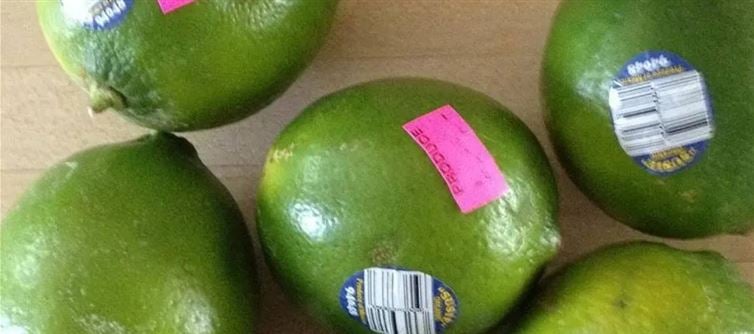
Why It's Not Safe to Just Wash
FSSAI clarified in a social media video that washing fruits and vegetables with stickers is insufficient. This is the reason:
Adhesives for stickers are not edible: These glues can cause damage if consumed, particularly by young children, the elderly, or people with weakened immune systems. They can also stay on the skin even after washing.
Chemicals are trapped by wax coating: To maintain their fresh appearance while being transported, a lot of fruits and vegetables are covered in wax and preservatives. If the product isn't peeled, the wax and adhesive from the sticker could get into your system.
Chemical buildup on surfaces: Surfaces with stickers tend to have higher concentrations of dust, pesticides, and preservatives.
The FSSAI advises peeling whenever feasible.
The FSSAI strongly advises:
Before consuming any fruits or vegetables that have been stuck, peel them, especially if they are coated or waxed.
Although thorough washing is necessary, it is not a perfect defense when wax or stickers are present.
To lower your risk, choose peeled vegetables when you're outside or traveling and can't clean them completely.
Which Produce Should You Be Cautious With?
While not every fruit or vegetable requires peeling, be extra cautious with those that often come with stickers and wax coatings, such as:
Apples
Pears
Mangoes
Cucumbers
Imported citrus fruits
Bell peppers
Use a vegetable brush, scrub thoroughly under running water, and make sure there is no wax or sticker residue left on the skin if you must eat it (as in cucumbers or apples).




 click and follow Indiaherald WhatsApp channel
click and follow Indiaherald WhatsApp channel